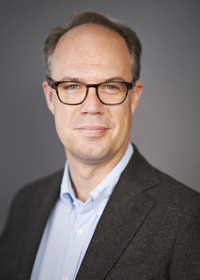Project Description
The Europeanisation of the Universities: Transforming Knowledge Institutions from within, c. 1985–2010
The last decades have seen a profound transformation of the European research and higher education system. At the end of the 1980s, this system mainly consisted of individual universities. Since then, universities have been linked together through a series of European projects. These fundamental changes are part of the history of European integration, but also a specific expression of the “knowledge society” as a new political and economic order. This project analyses the Europeanisation of European universities during the quarter-century when this new knowledge space was established, c. 1985–2010. The analytical lens is directed at four universities located across the continent. These Europeanisation processes will be analysed from a history of knowledge perspective. In addition, the project aims to contribute to the general development within the field of history of knowledge by studying how a specific institution—universities—underwent internal transformations.
Personal bio
Johan Östling is Professor of History, Director of the Lund Centre for the History of Knowledge (LUCK) and Wallenberg Academy Fellow at Lund University. His research is mainly devoted to the history of knowledge, but he has a general interest in the intellectual, political and cultural history of modern and contemporary Europe. After having studied and carried out research at the universities of Gothenburg, Uppsala, Sussex, Tübingen and Berlin, he defended his doctoral thesis about Swedish experiences of Nazism in the wake of Second World War at Lund University in 2008. His dissertation was awarded several prizes, including the Clio Prize and the Nils Klim Prize. In 2016 a revised English translation was published by Berghahn Books, Sweden After Nazism: Politics and Culture in the Wake of the Second World War. His main postdoctoral project was devoted to the Humboldtian tradition in modern Germany, not least when he, as a Pro Futura Scientia Fellow, was a visiting scholar at the Swedish Collegium for Advanced Study (SCAS) in Uppsala, Zentrum für Zeithistorische Forschung in Potsdam and Max-Planck-Institut für Wissenschaftsgeschichte in Berlin (2013–2014). His research resulted in his second monograph, Humboldt and the Modern German University: An Intellectual History (2018). Since the mid-2010s, he has in close co-operation with his colleagues been engaged in exploring and developing the history of knowledge as a new scholarly field. He has created a research environment at Lund, since 2020 in form of the Lund Centre for the History of Knowledge (LUCK). He has published several books, including the trilogy Circulation of Knowledge (2018), Forms of Knowledge (2020) and Knowledge Actors (due to be published in 2023). Östling is also an editor-in-chief of the yearbook History of Intellectual Culture (De Gruyter). He is currently finalizing a textbook with Cambridge University Press devoted to the history of knowledge. In 2019 he took up a position as a Wallenberg Academy Fellow. Together with two postdoctoral researchers he has in recent years investigated the circulation of the humanities in the postwar society. In 2023, he will launch a research project on the Europeanisation of universities since the 1980s.


